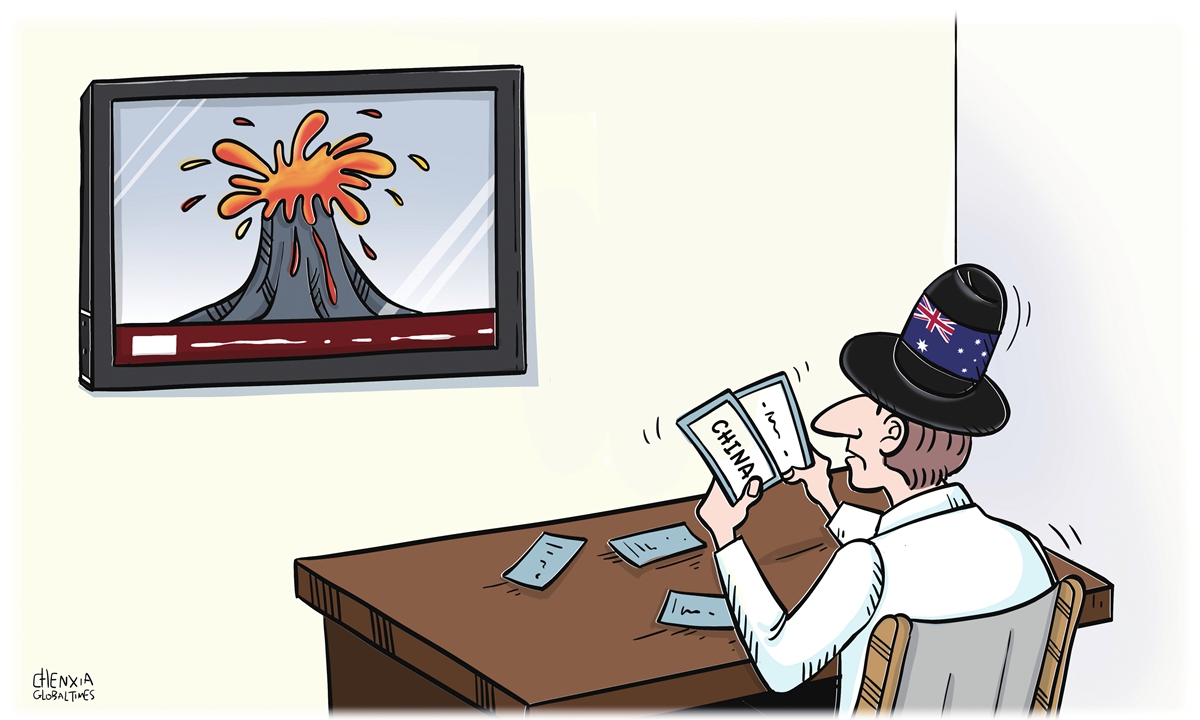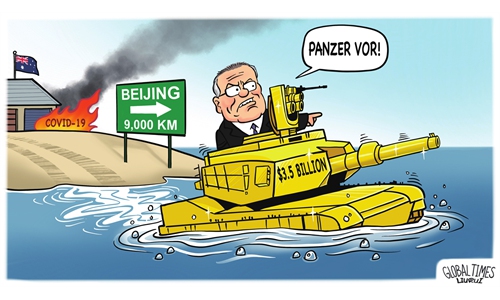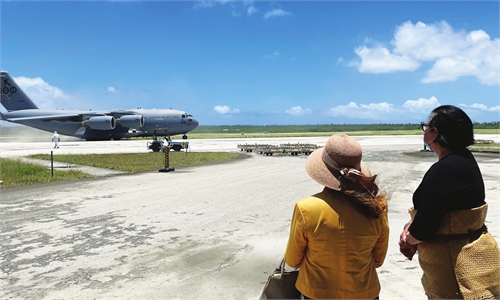
Illustration: Chen Xia/GT
The whole world now is paying particular attention to the catastrophes caused by massive volcanic eruptions and tsunamis in the Pacific island nation Tonga. Former Australian prime minister Kevin Rudd is no exception. But he tweeted Wednesday that "Australia must be first and foremost giving assistance to Tonga. Failing that China will be there in spades." He then suggested Australian Foreign Minister Marise Payne visit Tonga as soon as possible.With great sympathy, all members of the international community want to help Tonga pull through. However, Rudd's statement makes him look flippant: While Tonga is suffering from a series of horrible disasters and in urgent need of help, Rudd is reminding the Australian government to take action before it falls behind China. In other words, he is treating humanitarian relief efforts as a competition for geopolitical influence.
Unfortunately, Rudd's opinion is not an isolated example. It actually represents a type of common voice in Australia that is extremely alert to China's moves in the region. For instance, a reader's letter published on the website of The Australian notes that Australia needs to help Tonga for "not only good humanitarian reasons, but also self-interest with national security." That is to counteract China's growing influence in Tonga.
Canberra sees the Pacific Island region as its backyard. It considers itself the region's "natural" leader, so it is wary of the activities of non-regional powers. And in recent years, Australia sees China's activities in the region as a threat to its regional influence.
This is related to the fact that China has increased its engagement with Pacific Island countries, for example, through the Belt and Road Initiative. As a result, Canberra has become concerned that Beijing will use its growing economic influence to gradually begin expanding its geopolitical influence in the region. Some in Australia even believe that China might establish a military presence there.?
Against this backdrop, Australia has significantly increased its focus on the Pacific Island region. It has proposed the strategy of Pacific Step-up where Canberra assesses the importance of its relations with Pacific island countries at a strategic level. On the one hand, Australia has increased its economic assistance, and on the other, it strengthened its security cooperation with countries in the region, including the enhancement of defense against China. Thus, it is not surprising that Australians like Rudd hold such views - It is just an instinctive geopolitical reaction from some in the country.
Rudd's tweet may be completely understandable in terms of geopolitics; however, it is quite inappropriate for him to mention his geopolitical intentions or purposes so naturally in the face of natural disasters. Right now, the international community needs to focus on these questions: how much damage Tonga has suffered, what difficulties it has, and what kind of assistance it needs.
Moreover, all types of efforts to help Tonga should be welcomed. Countries should try their best to help the Pacific island nation through its difficulties, rather than use it as an excuse to achieve some political purpose. Playing the China card now cannot solve any actual problem. It will not only undermine the world's solidarity in cooperation to assist Tonga, but also damage trust and cooperation between China and Australia.
It is laudable that Australia has already sent aircraft to support Tonga, and Canberra's?HMAS Adelaide?is also expected to reach Tonga on Friday. However, Rudd's suggestion about the visit of the Australian foreign minister is quite confusing. The question is, how much practical significance will there be for Payne to visit the country? Her visit to Tonga will more likely be a way to show Canberra's posture: Australia values Tonga a lot and still has influence in the region. When Tonga's airport was just cleared of ash on Wednesday, sending its foreign minister to the nation in disaster should definitely not be Canberra's priority.
The author is an assistant research fellow at the China Institute of International Studies. opinion@globaltimes.com.cn



